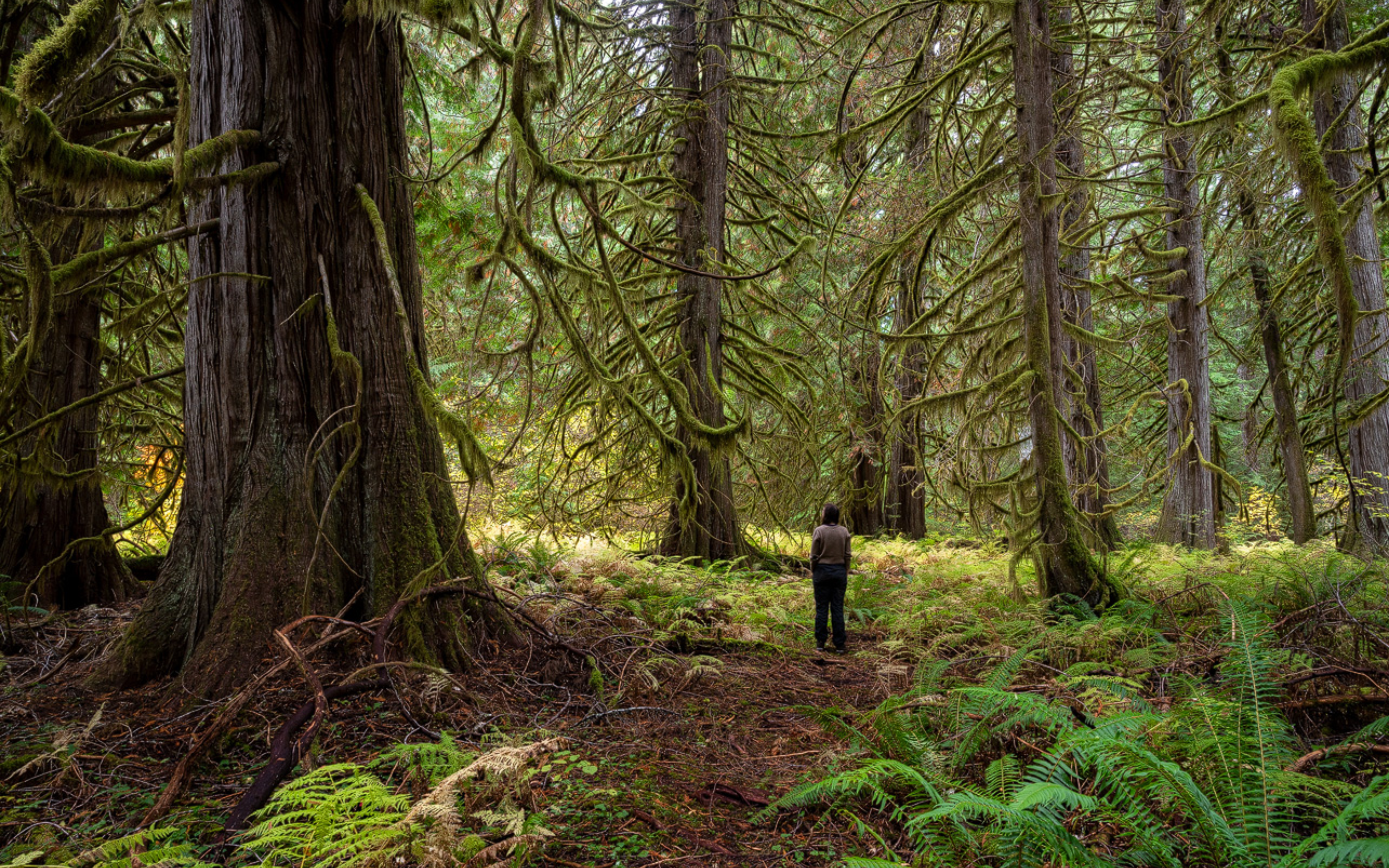For 30 years, the Northwest Forest Plan (NWFP) has guided management of 17 national forests stretching from western Washington and Oregon south to northwestern California.
Proposed changes to the plan are underway. We are asking you to take two concrete actions to help advocate for the ecosystems you love.
Originally developed to curb the impacts of destructive logging on imperiled species like the northern spotted owl, the plan has protected habitat, safeguarded watersheds, and provided climate benefits, while still allowing commercial logging. Despite its lofty goals, the plan had serious shortcomings. Most notably was the U.S. Forest Service’s exclusion of Tribal Nations in the development of the plan and failure to incorporate Indigenous Knowledge. Decades of unnatural fire suppression have resulted in unhealthy forest conditions. As we face worsening climate change, biodiversity loss, and uncharacteristically severe wildfires, we need an ecologically sound and socially just plan that not only ensures intact, thriving ecosystems, but also meaningfully upholds Tribal sovereignty, to guide us into the future.
On November 15, 2024, the agency released a Draft Environmental Impact Statement (DEIS) analyzing proposed changes to the NWFP and kicked off a 90-day public comment period. Changes include measures to expand Tribal inclusion across the NWFP area through cultural harvesting and access, co-stewardship agreements, fire stewardship, workforce development, and youth education. However, the agency also proposes changes that would eliminate logging protections for mature forests and significantly increase logging volume outputs from national forests.
As the U.S. Forest Service considers changes to this landmark plan, it’s important that they hear from advocates like YOU! Take a few moments to comment on the proposed changes to support Tribal inclusion, old forest protection, and fire resilience. Follow the steps below to weigh in on the future of the Northwest Forest Plan:
We are asking you to take two separate actions: First, sign on to the two petitions linked below by March 14th at 12pm PST. Even better, sign them now. These petitions, including your name, will be added to the public comment record.
Petition to support the adoption of measures to advance Tribal inclusion and Indigenous Knowledge in Northwest Forest Plan amendments. (This will take you to a new tab)
Send in a comment letter on Northwest Forest Plan amendments addressing the importance of protecting older forests from commercial logging, ensuring Indigenous inclusion, and supporting the use of beneficial fire. (This will take you to a new tab)
Additional advocacy:
These petitions do not allow edits, but if you would like to do more, please submit your own unique comment directly to the U.S. Forest Service through this comment portal by March 17th at 9pm PST. You will be able to type your comment into the letter box OR upload a written comment as an attachment.
In your comment, include who you are, why you care about the future of our public forests, and what you think amendments to the Northwest Forest Plan should entail. Consider using the talking points below to help draft your comment. As always, the more you personalize your comment to the agency, the better.
- The Forest Service should retain all of the Tribal inclusion plan components analyzed in the DEIS. I support elements of the proposed amendment that include a beneficial fire approach and support of Indigenous cultural burning and co-stewardship agreements.
- I am concerned that the Forest Service’s proposed amendment to the NWFP weakens protections for our region’s older forests, clean water, and wildlife habitat. If enacted, these changes would significantly increase logging levels across our public forests, open mature and old-growth trees to commercial logging, and sideline the protections that communities, wildlife, and ecosystems depend on. Preserving biodiversity and connected wildlife habitat across the region should be a core principle of this forest plan amendment.
- Fire resistance and resilience can be bolstered by preserving and restoring mature and old-growth forests. Fuels and fire management should focus on the home ignition zone and on non-commercial treatments and beneficial fire use, not commercial logging. Indigenous cultural burning and wildland fire use should be prioritized. Commercial logging for fuel reduction can negatively impact wildlife habitat, remove large fire-resistant trees, introduce invasive species, and create hazardous fire conditions. Standards must ensure that fuel reduction is both needed and effective before logging is allowed.
- The amendment should recognize the wide variety of social and economic benefits national forests provide for local communities and the region as a whole – not just timber, but also clean water, climate stability, quality of life, and outdoor recreation opportunities.
For additional support in writing your comment letter, join the next WildCAT meeting on Wednesday, March 12th, from 6-7:30pm in person at the Cascadia office or via Zoom. We’ll have a potluck and write comments together! Thank you for taking the time to weigh in on the future of Pacific Northwest public forests.

